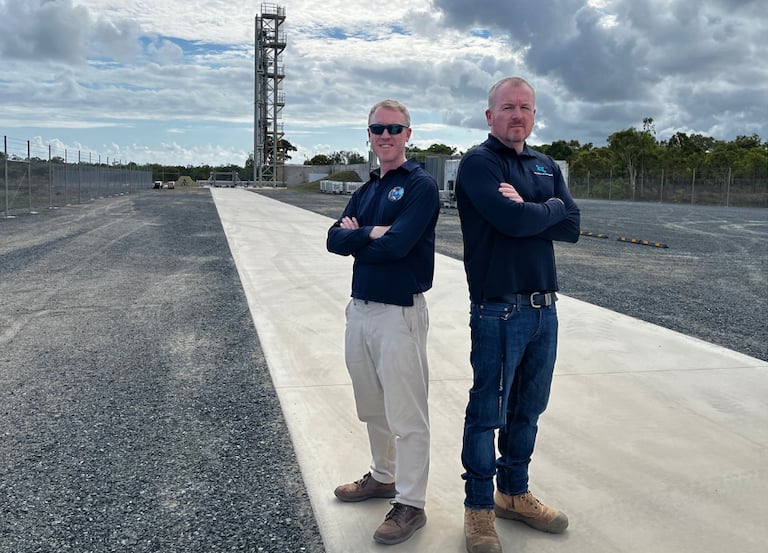Bowen, we have lift off.
In the end Gilmour Space’s 23-metre-high orbital rocket didn’t make it into space, crashing after less than 10 seconds in the air, but finally, after several attempts, the Australian-designed and made rocket took off just after 8.30am, AEST.
“Got off the pad , I am happy. Of course I would have liked more flight time but happy with this,” the rocket company’s eponymous cofounder and CEO, Adam Gilmour, said on LinkedIn.
As Elon Musk’s SpaceX knows all too well, following several recent explosions of its Starship, getting a new rocket into the air is a huge challenge.
Footage of the launch shows the rocket taking off, rising about 100 metres in the air before falling back to earth, with Josh Keegan, aka Aussienaut commenting as he filmed the launch that the rocket didn’t have enough thrust to take to the skies. A couple of minutes later, a boom heard kilometres away signalled the explosion of the rocket, filling the rural landscape with a white cloud plume.
You can watch Keegan’s footage here – the liftoff occurs around 1 hr 32 mins into his broadcast. There was a jar of Vegemite aboard the Eris rocket as a symbolic payload on its maiden flight.

Gilmour Space’s Eris orbital launch vehicle at the Bowen Orbital Spaceport in north QLD
The Eris Block 1 rocket is a three-stage orbital launch vehicle designed to carry small satellites to orbit. Gold Coast-based Gilmour Space was founded in 2013, and has grown to more than 200 employees. The company also built a launchpad in northern Queensland at Bowen, 200km from Townsville. Yesterday, when the latest of several launch windows opened, the company got to T-10 minutes to launch before scrubbing the test flight when high-altitude winds stayed above the safety commit limits set by regulators.
Gilmour’s Eris rocket uses proprietary hybrid-propellant technology that’s safer and cheaper than traditional liquid- and solid-fuelled rockets. In that respect, the crash is better for the environment than alternative propulsion methods
When successful, it could be the world’s first hybrid-propelled rocket to achieve orbit, as well as giving Australia sovereign capability.
The startup has attempted several launches this year, since finally receiving regulatory approval for a test flight in late 2024, but poor weather and technical issues caused delays until today.
The spacetech startup has raised $142 million in venture funding, including $19 million Series B in 2018 and $61 million in a Series C in June 2021 and earlier this year, a $55 million Series D, as well as attracting tens of millions in funding from local, state and federal governments.
Swinburne’s codirector of the Space Technology and Industry Institute, Dr Rebecca Allen, said the rocket was not intended to reach orbit
“The test provided valuable data for the team as they prepare the vehicle to be Australia’s ticket to Low Earth Orbit,” she said.
Startup Daily is awaiting an official statement from Gilmour Space on the launch and will update this story when it lands.
More to come.

Gilmour Space cofounders Adam and James Gilmour, at the Bowen Orbital Spaceport just as the build got underway.
